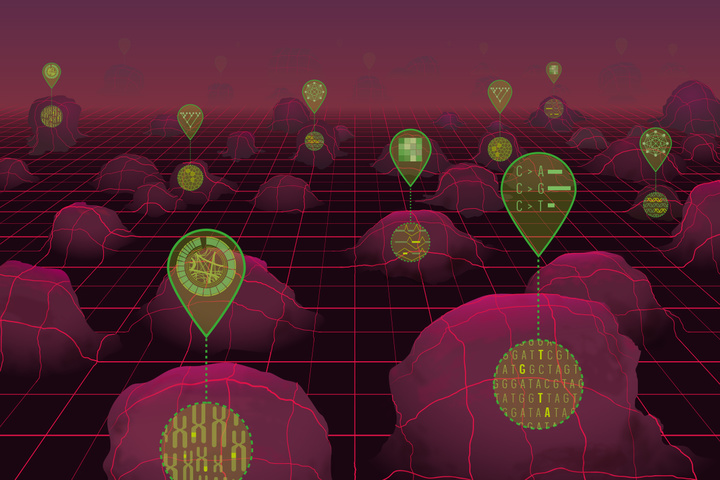Cancer is currently the second leading cause of death worldwide, with 9.6 million deaths due to cancer in 2018 alone. The World Health Organization Forecasting the number of global cancer cases will increase by 60% over the next 20 years, becoming The world’s number one cause of death.

▲ Image from: HealthyWomen
The future may not be a reality. In the latest issue of Nature magazine and its sub-issues, 21 papers on cancer research , with the efforts of more than 1,300 scientists and doctors from 37 countries, completed” cancer whole genome “.
The study was led by the Pan-Cancer Analysis of Whole Genomes Consortium (PCAWG). According to Nature, the research team performed whole genome sequencing on 2658 cancer samples. Covers 38 different types of tumors.

▲ Picture from: Nature
In fact, after the first human genome sketch was completed in 2001, sequencing the whole genome of cancer has become an important goal in the field of cancer research. In the past, the genetic analysis of cancer focused on genes encoding proteins, but these genes It only accounts for 1% of the entire genome, and the formation of cancer cells in many patients cannot be explained by only 1% of the genes.
This study revealed the remaining 99% of cancer genome mutations. Studies have shown that almost every cancer genome carries 4 to 5 genes that drive mutations, and only 5% of the genome does not find such “driver genes.” This also means that cancer can form thousands of cancerous genes through the random arrangement of these “driving genes”.

▲ Photo from: Napoli Village
Cancer originates from the genetic breakthrough of cells in the body. Due to the randomness of the genetic breakthrough, to some extent, there are no two cases of the same cancer in the world. They are basically the same type of cancer, and the oncogenes may also be different. It makes it harder to treat cancer because patients appear to have the same cancer and may respond completely differently to the same drug.
After the sequencing of the whole genome of cancer is completed, this long-term problem of clinical treatment of cancer may be solved soon, said Dr. Peter Campbell, director of cancer genetics and genomics at Sanger Institute:
We show that the reasons for these different treatment effects are written in DNA. Each patient ’s cancer genome is unique, but there is a certain degree of DNA duplication, so through the study of a large amount of data, we All these patterns can be identified to optimize the diagnosis and treatment of cancer.
It is reported that researchers have summarized the timeline of the first batch of gene mutations covering all types of cancer. Mike Stratton, one of the authors of the paper, representation With a detailed catalog of cancer DNA mutation markers, researchers around the world are now able to investigate the chemicals or processes associated with it.
This will deepen our understanding of how cancer develops and discover the causes of cancer formation, helping to shape cancer prevention and public health strategies.
In addition to sequencing the whole genome side of cancer, in the remaining several papers, the mechanism and influencing factors of cancer genes have been discussed in depth, such as the evolution of cancer cells and genetic driving factors in non-coding DNA, so that human beings have a better understanding of cancer. A more comprehensive understanding.
